Numerous games provide the means to concoct potions, elixirs, poisons, and all manner of useful liquids, but as with most things in Kingdom Come: Deliverance 2, few expect you to undergo the arduous processes to actually craft such things.
38:08

Related
Returning from the original game is the Alchemy crafting and skills, in which you must use your gathered ingredients and the various tools at Alchemy benches found throughout the game in order to create potions, following your instruction book down to the last grain of sand in your hourglass. Here’s what you need to know to become a master alchemist.
How Does Alchemy Work In Kingdom Come: Deliverance 2?
To craft potions in Kingdom Come: Deliverance 2, you will need the recipe, the necessary herbs, and an alchemy bench. These benches can be found throughout the game, with usually at least one available in most villages. However, don’t just assume you can head into the backroom of an Apothecary and use their bench, as that might be trespassing.
You have a selection of tools and liquid bases available to you on the bench, which are as follows:
|
Liquid Base |
|
|---|---|
|
Water |
|
|
Wine |
|
|
Oil |
|
|
Spirits |
|
|
Alchemy Bench Tools |
|
|---|---|
|
Recipe Book |
To the right of the bench will be your book, which you can refer to at any time |
|
Hourglass |
Used to time how long things can be done, with one turn referring to one turn of the hourglass |
|
Cauldron |
This is where things will be poured, mixed, simmered, and boiled |
|
Bellows |
Used to fan the flames and get the cauldron to boil |
|
Mortar & Pestle |
Used to grind herbs when the recipes say to do so |
|
Bowl |
Used to place herbs to prepare them beforehand |
|
Phials |
Picked up and used on the cauldron to finish and pour the potion |
|
Distiller |
Used with the phial to finish the potion when the recipe states to distill it |
After checking the recipe book on the side, you can prepare the herbs by either holding Prepare on the recipe book page, or by going into your inventory while at the bench and picking out the herbs. They will then appear on the shelf over the bench’s right half.
Selecting each thing will interact with it accordingly: pick up herbs, raise/lower the cauldron, turn the hourglass, grind a herb with the pestle, and so on.
Now, you’ll be ready to craft the potion of your dreams. Or if it’s Lullaby, someone else’s dreams.
Recipe Book & Herbarium
As mentioned, your recipe and herbology book will be on the right side of the bench. This will be where you can find the recipes you wish to work on, as well as information about all manner of herbs and flowers found in the game.
At first, after undertaking Bozhena’s alchemy tutorial, you’ll have access to the Chamomile Decoction recipe. Recipes will have a description of function, and contain both a written recipe with steps on the left-hand side and an illustration of the steps on the right-hand side.
You’ll need to follow the steps as closely as possible, first paying attention to the liquid base, necessary ingredients, when to add and boil, whether to grind certain ingredients, and the process of finalising the craft. The more accurate you are with steps and timings, the better quality the final potion will be.
Errors in the process can lower the quality of the potion, or even ruin the whole process. There are perks in Alchemy that help mitigate this, but care must still be taken.
How To Unlock More Recipes
While some recipes may become available through quests and reading, the most common way to obtain more is by purchasing the recipes at an Apothecary. Once purchased, go into your inventory and read the page, and you’ll now have access to this recipe in your book at an alchemy bench.
You can also check which recipes you know by heading to the Crafting tab in the menu, and looking under Potions and Poisons.
Gathering & Preserving Materials
Similar to the recipes, herbs and materials can be bought from an Apothecary, should you need something specific. However, you can also find and pick flowers and herbs as you explore, and soon you’ll come to recognise which ones you need.
You’ll want to keep in mind that herbs have a durability condition, however. Should you keep it in your pockets for too long, then it will degrade, and eventually become an obsolete quality. You can still use them, but you shouldn’t.
Try to prioritise herbs and flowers while they are fresh, either picking or purchasing them when you need them. Fresher herbs will aid the quality of your potions much more.
You can also use drying racks to dry out your herbs, meaning they will last a lot longer on your person. They may not be as high quality as fresh materials, but they are better for carrying. You can often find drying racks at Apothecaries, near alchemy benches, or in some back rooms of inns and homes.
Which Alchemy Skills Should You Unlock?
As with the other skills in the game, if you practice alchemy, your skill level will increase and you’ll gain perks in that skill, allowing you to unlock beneficial skills and passives that can help with improving the skill further.
While there isn’t an overwhelming amount to choose from, it can still be daunting when you’re starting out in the early game, so we’ve highlighted a few of the skills you’ll want to be on the lookout for, to make sure you grab them as soon as possible.
|
Enthusiast |
Req Level 6 |
While brewing potions, your Energy will slowly replenish and your Nourishment will not decrease. |
|---|---|---|
|
Secret of Equilibrium |
Req Level 8, Exclusive with Secret of Matter |
The brewing process will be more tolerant of minor errors, making it easier to achieve better quality potions. |
|
OR Secret of Matter |
Req Level 8, Exclusive with Secret of Equilibrium |
Every time you successfully brew a potion, you get 1 extra potion of the same quality. |
|
Dark Arts Apprentice |
Req Level 12 |
When brewing potions between midnight and dawn (0:00 – 4:30), you’ll work better – the whole process will be less susceptible to minor mistakes and you’ll more easily achieve a higher quality product. In addition, you have a +2 bonus to Coercion, Domination, and Intimidation stats when talking to commoners. |
While you can only pick either Secret of Equilibrium or Secret of Matter, you’ll later have the choice between Secret of Equilibrium II and Secret of Matter II. Picking the second version of your original choice will boost the effect, while picking the alternative will give you the base version of that perk.
Potion Qualities And Quantities, Explained
Potions can also have varying degrees of quality, and how many you actually yield can vary depending on your skills, perks, and overall qualities.
The quality of potions themselves could be Weak, Standard, or Strong, with the effects and durations being enhanced the higher the quality.
The quality of the potions you craft will depend on a few factors, as we mentioned, most notably being:
- Accuracy in following the recipe steps
- Whether the herbs are dried or fresh
- The condition of the herbs used
As you improve your alchemy skill, Henry will gradually improve at yielding better products, but perks can make a world of difference too. Still, you’ll want to make sure you use the best and freshest ingredients you have, especially when crafting something with healing factors such as Marigold Concoction, or when crafting poisons to make them more effective, whether it be in a stew or on the tip of your arrows.

Next
Kingdom Come: Deliverance 2 Review Round-Up
The Kingdom Come: Deliverance 2 reviews are coming in, and they’re overwhelmingly positive.
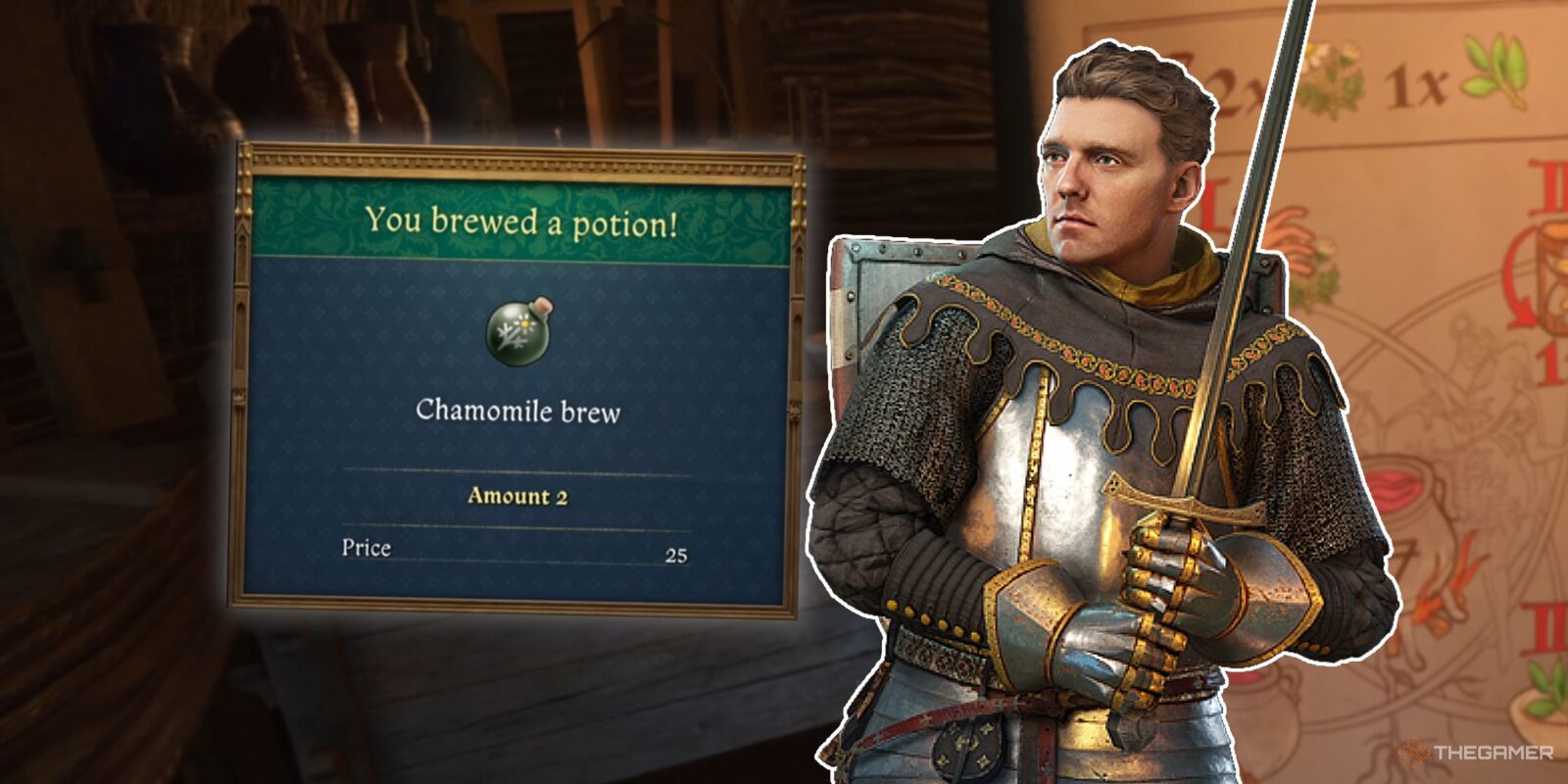

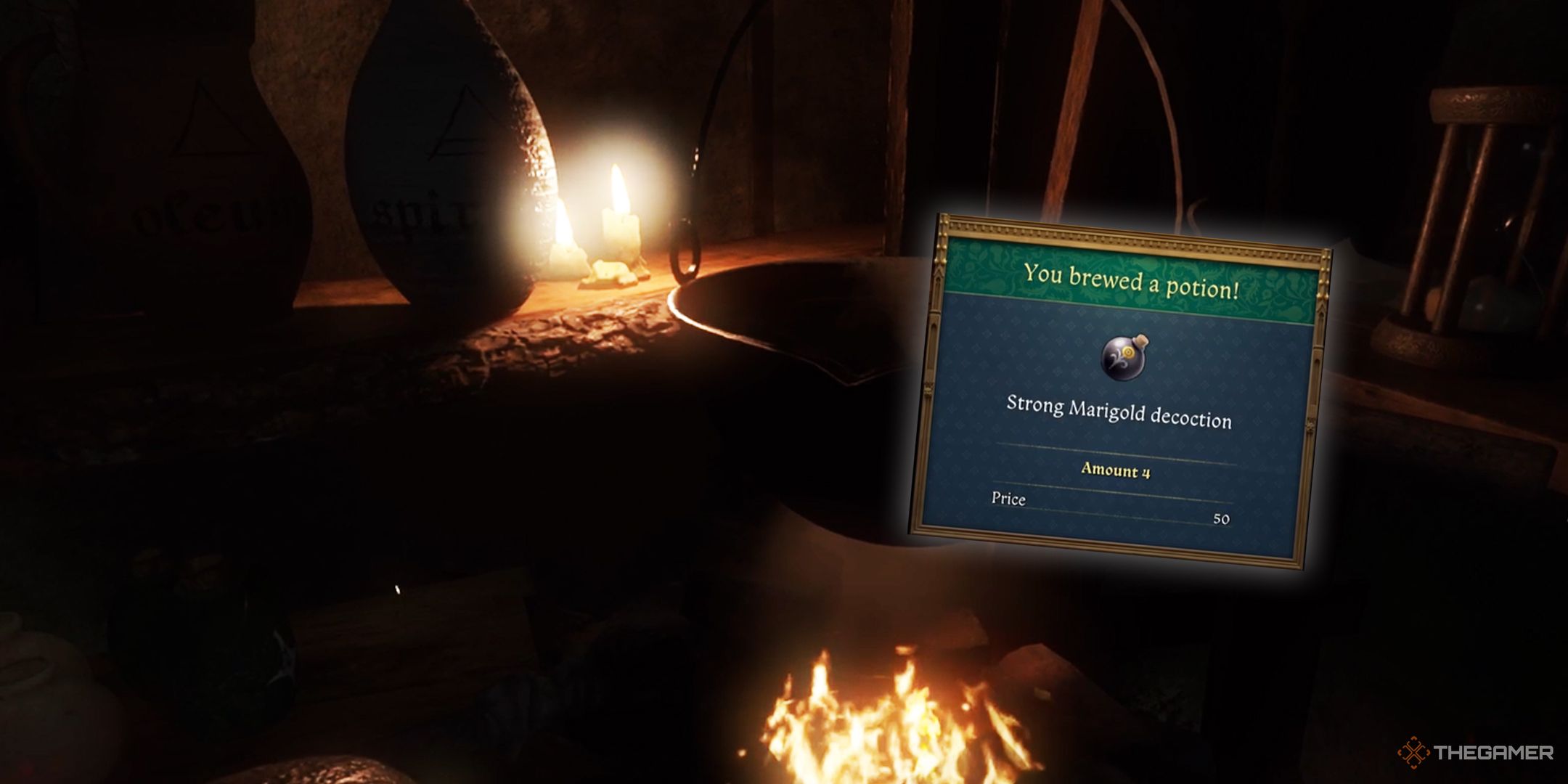
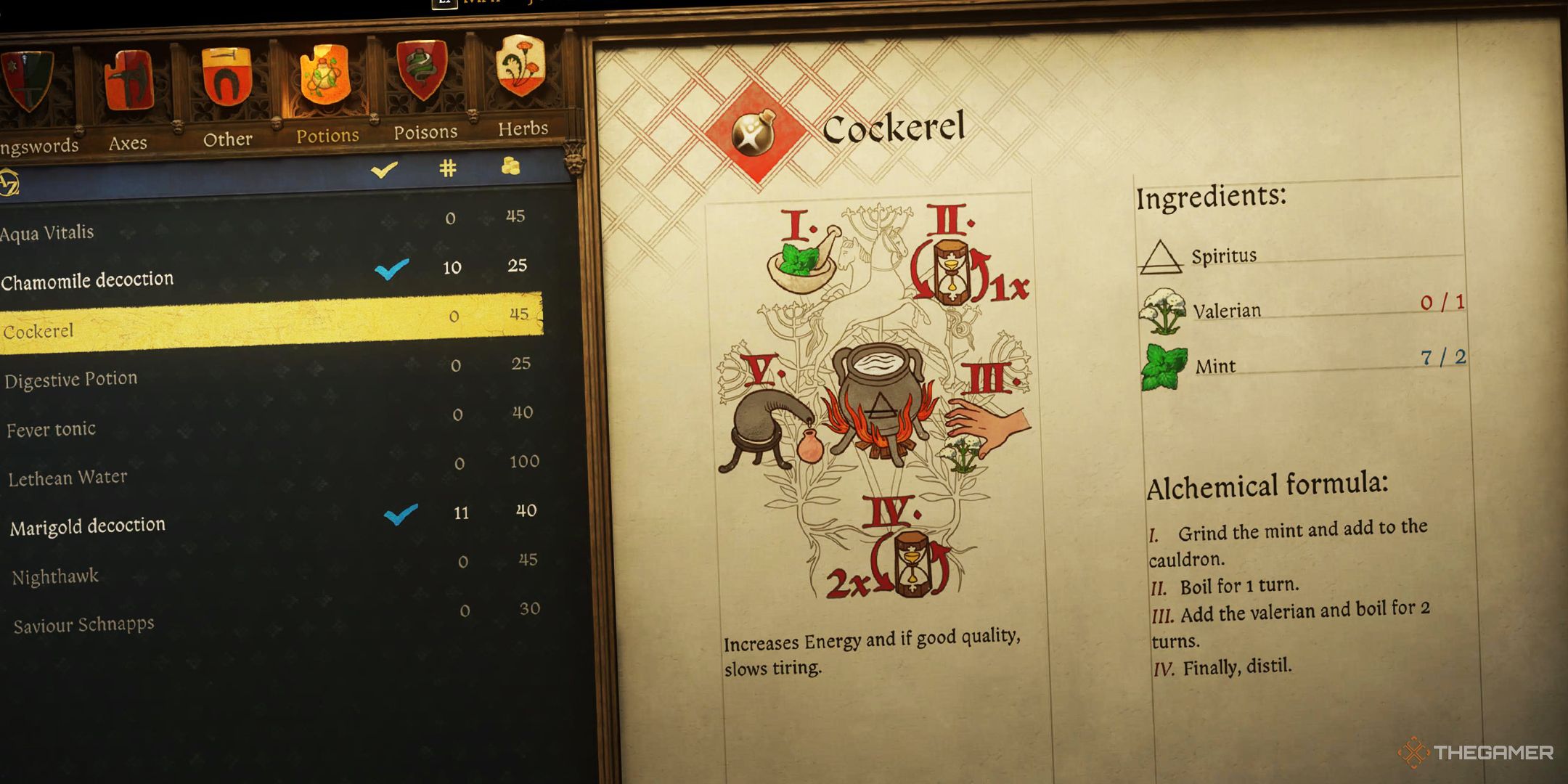
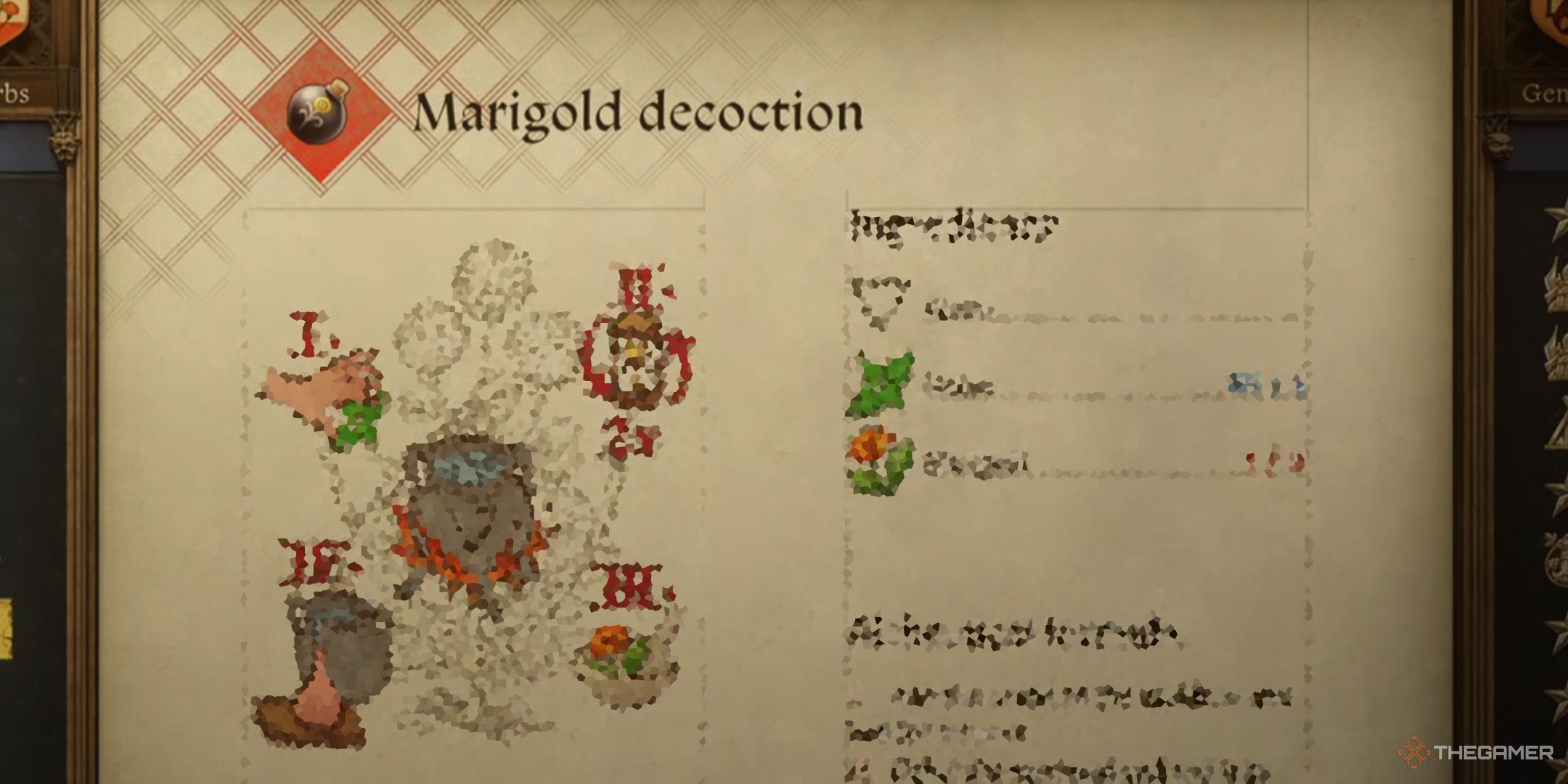
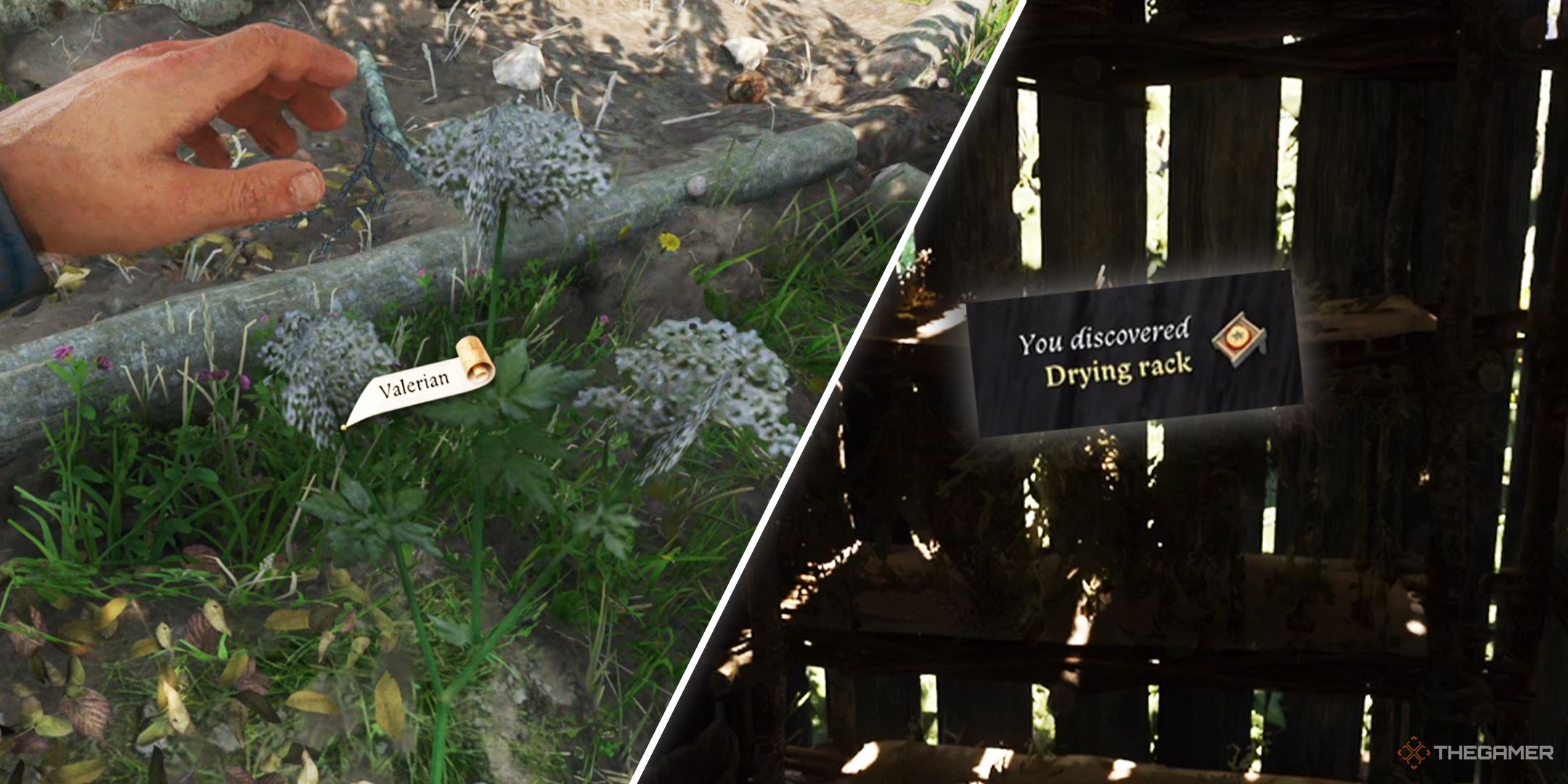
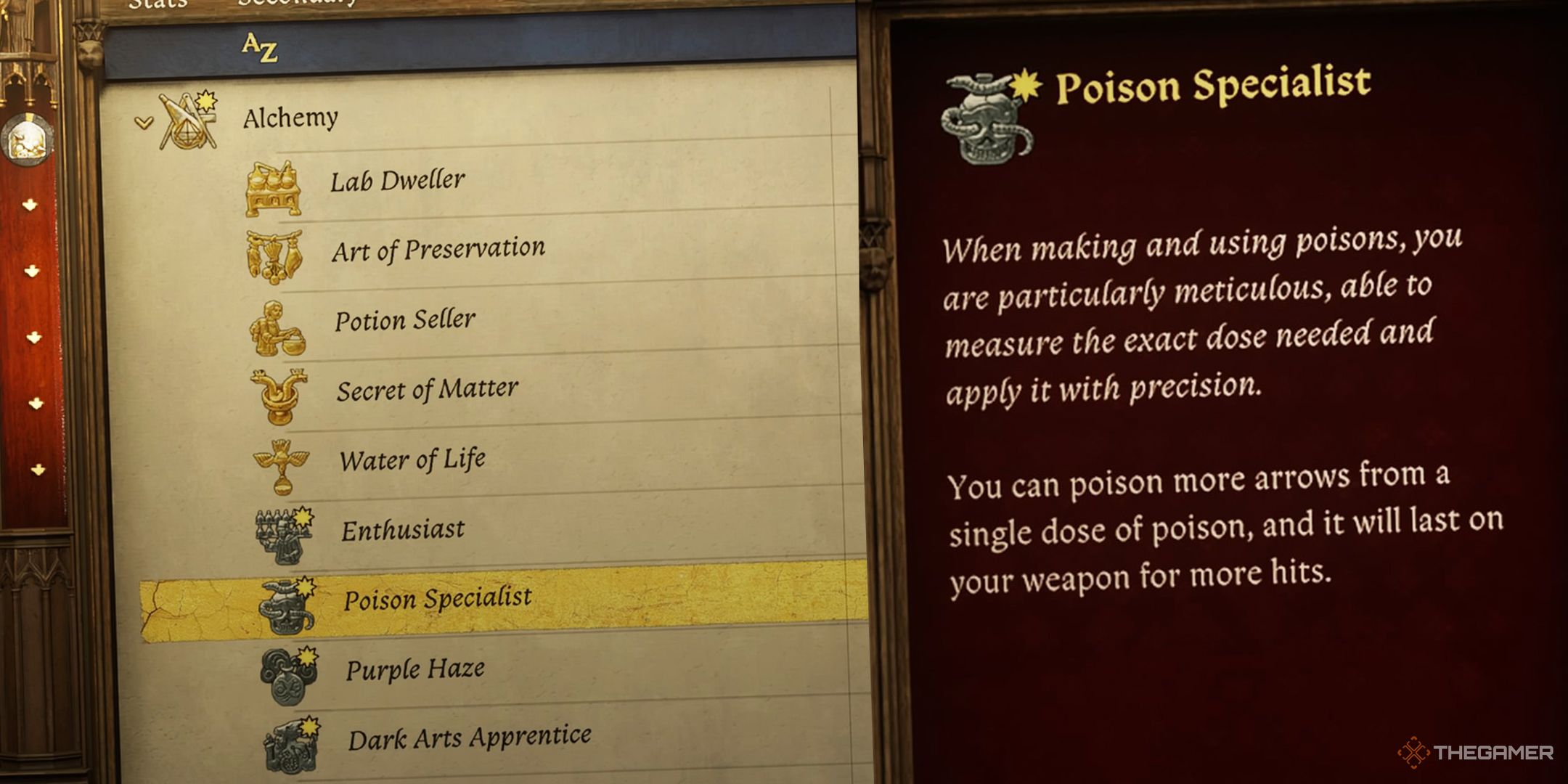
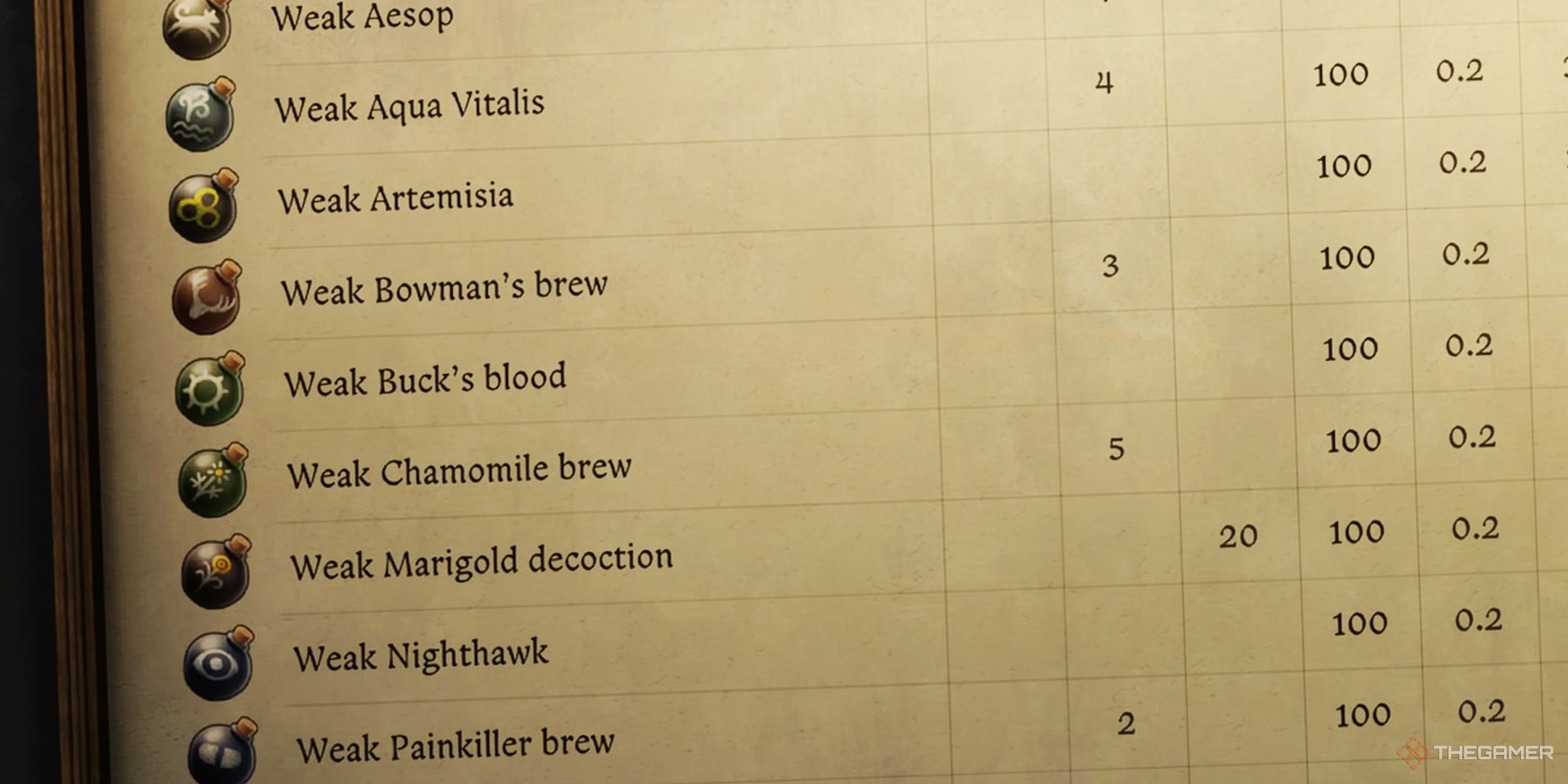





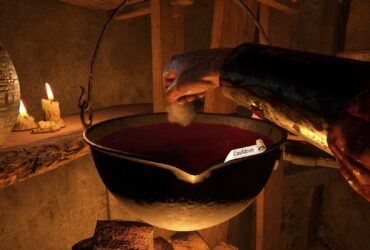




Leave a Reply